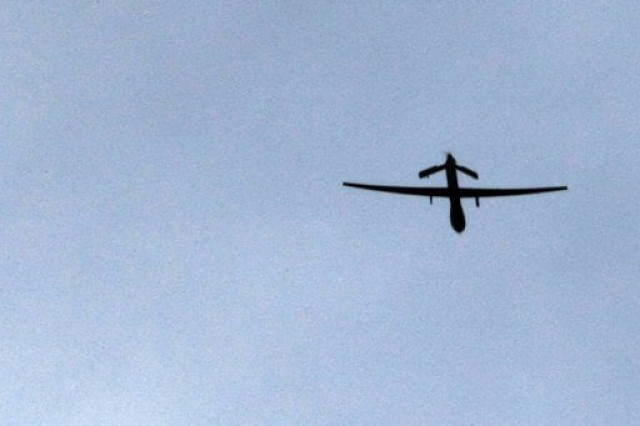The truth about drone attacks
The Americans have gradually become vilified as allies that violated the sovereignty of the country they were to help.

He says: “We wanted intelligence; we wanted them [the US] to locate targets. It was only a general kind of carpet agreement with the US, and surveillance was allowed on a case-to-case basis. Once we located the targets, we would decide on the method of striking either by helicopter gunship... or some other way. But that was a decision which was left to us.” And when the drone attacks did not abide by this ‘carpet agreement’ (sic) what did the general do, given the public furore against the attacks in Pakistan?
The present government knew that Musharraf had agreed with the drone option. Prime Minister Yousaf Raza Gilani says “the previous government” had given permission for “reconnaissance and surveillance flights by spy planes, but never for attacks”. Yet a member of his own cabinet and the allies in Khyber-Pakhtunkhwa kept verbalising their approval of the attacks because they took out the leadership of the terrorists killing innocent Pakistanis. Only in October this year the PPP government, along with its allies, changed its stance on drones and began opposing them.
The American reaction has been a kind of policy double-take. The top officials kept on hinting that the drones were flying from Pakistani soil (photographic proof of this was provided in a report published in a Pakistani newspaper in Feb 2009) and attacking with the approval of the government. The statements were muffled and aimed at not embarrassing a government insisting on denial; also, there was the delicate matter of sparing the current army chief who was a part of the set-up that approved — partially or completely — the drone attacks under Musharraf.
If one believes the Pakistani side, the Americans violated the agreement which was that only Pakistan would act on the “location information” of the targets and not the former. That also means that the drones would not carry missiles but only the apparatus that identifies targets. The truth is that the drones too relied on information and tagging from the ground before they could fire their precision missiles. It is difficult to grasp how the Pakistan Army could benefit from the surveillance done without possessing the drone aircraft.
The media has turned against the drones and the Americans have gradually become vilified as allies that violated the sovereignty of the country they were supposed to help. Political parties like the Tehreek-i-Insaaf actually pegged their campaigns on the collateral damage they inflicted on the innocent inhabitants of the Tribal Areas. Is this is a mechanism devised to get out of a commitment that Musharraf had made? The government has now conveyed to the US that drone attacks are not acceptable. The Americans thought they had a clear mandate from Pakistan to use the drones but now the situation has changed. The Pakistanis want the attacks to stop and with the Americans thinking of leaving Afghanistan, the drones are assuming an increasingly greater strategic importance.
Pakistan is on a weak wicket because of its lack of control over areas from where ground attacks inside Afghanistan are being carried out. Moreover, some of the Pakistani territory being attacked by the drones is occupied by non-Pakistani foreigners over whom the Pakistani state has no control over (or it is not willing to exercise it).
Pakistan has to either keep quiet or challenge the American claim that a clear mandate for drone attacks was given. Keeping quiet would be advisable if the former doesn’t want a crisis in its relations with the US. When a decision to defy the American action is taken it will have to be carefully weighed who needs the other more, especially given the fact that many analysts think that America needs Pakistan more than vice versa.
Published in The Express Tribune, December 4th, 2010.















COMMENTS
Comments are moderated and generally will be posted if they are on-topic and not abusive.
For more information, please see our Comments FAQ